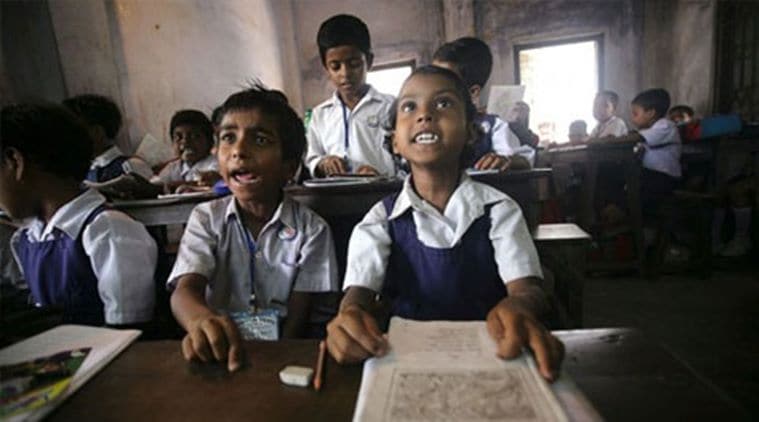Happiness begets happiness
Demoralised teachers are ill-suited to deliver Delhi’s new curriculum to students.

The administration needs to give teachers more reasons to be happy and satisfied as professionals.
Teaching happiness and well-being as part of building positive psychology and value education is among the most explored educational ideas of contemporary times. Delhi’s AAP government has recently launched a “happiness curriculum” in 1,000 Delhi government schools, covering about 50,000 teachers and 4 lakh students.
The relevance of such a curriculum is well-established. Yet, there are susceptibilities that the Delhi government may need to consider. The role of teachers in ensuring that such a curriculum is delivered in its true spirit merits careful attention. My interactions with government school teachers in Delhi revealed two concerns. First, they are generally professionally dissatisfied and they stick to the occupation due to the benefits it offers — particularly that of job security and pension. Given such an outlook, wouldn’t it have been better to measure a happiness index among teachers first? It is logical to contend that teachers who are demoralised or stressed will be ill-suited to teach “happitude” to children.
This should be done alongside addressing their genuine grievances like inadequacy of basic water and sanitation facilities in schools, decrepit infrastructure and poor pupil-teacher ratio. The administration needs to give teachers more reasons to be happy and satisfied as professionals. Ironically, the day the newspapers carried the image of Dalai Lama launching the happiness curriculum they also reported that the Delhi High Court had termed facilities in government schools, such as water supply and toilets, as “pathetic”.
Second, the notion of teaching students social and emotional skills or enhancing their positive psychology through schools is a mandate which must go beyond a fixed and prescribed curriculum. A transformative idea like this cannot be limited to the scheduled 45-minutes of classes alone. Its values will need to be imparted comprehensively, integrated in the school ethos, through supportive relationships and a nourishing environment. Teachers will have to lead by example and demonstrate gratitude or compassion or any such positive behaviour as they teach other subjects, and across the most ordinary everyday school interactions. This will necessitate greater commitment and motivation from the teachers than what can be instilled or achieved in a 10-day orientation programme. This will also mean moving away from the dominant classroom management strategies.
Greater commitment and motivation will also be required from the government. As mentioned before, addressing more basic and fundamental issues like school infrastructure and improving teacher-student ratios is needed. This will also mean that as the political party governing Delhi, AAP itself needs to up its own happiness index and improve relations with the LG and the Centre. This will also allow for better fund utilisation within the education sector. Although the AAP government has made higher allocations to education in its budgets, its utilisation has been lower than the previous governments due to petty power conflicts.
Another possible risk to the effective implementation of the happiness curriculum is the sheer timing of its initiation. Given that the Centre is likely to do away with the no-detention policy in the Right of Children to Free and Compulsory Education (amendment) Bill, 2017, from August this year, it will be a year of academic re-adjustment for both teachers and students. There will be pressure to perform and achieve literacy related cognitive outcomes which may shift the effort away from something as abstract as inculcating happiness.
Thus, there is a real danger that happiness may become a subject which is accorded only a secondary importance and teachers would measure the happiness index (if they actually do) grudgingly, and feeling unfairly burdened by what they may perceive as yet another clerical task.
Despite these potential challenges, the launch of the happiness curriculum presents both a discerning variation in the politics of curricula as well as in framing curriculum. It provides schools an opportunity to teach living skilfully, rather than merely developing human resource.
Delhi Education Minister Manish Sisodia claimed at the launch that human-centric education can address the issues of terrorism, corruption and pollution. However, we need to build the character of our institutions for them to make a mark. Happiness curriculum could allow one such opening. If it succeeds even moderately to instil teachers with an understanding of their roles in advancing social and emotional skills as educators and equips them with strategies and prospects to do the same, it will be no mean achievement. Pursuing happiness within and through school is a worthwhile goal. The journey, however, must be enduring.
The writer is a senior research scholar at Department of Social Work, Delhi University
For all the latest Opinion News, download Indian Express App







































No hay comentarios:
Publicar un comentario